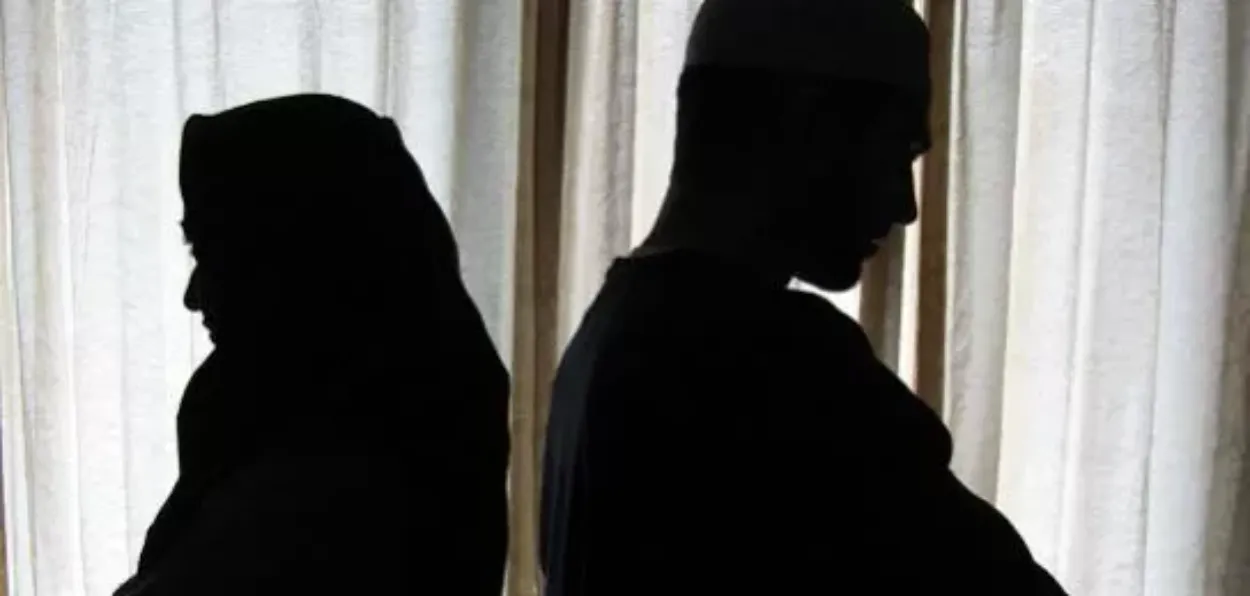
Eman Sakina
Divorce is permitted in Islam as a last resort if it is not possible to continue a marriage. Certain steps need to be taken to ensure that all options have been exhausted and both parties are treated with respect and justice. Islam holds that marriage should be characterized by kindness, compassion, and peace. A wonderful blessing is marriage. Each spouse in a marriage has duties and obligations that must be carried out lovingly for the benefit of the family. Islam tolerates divorce and separation of a husband and wife under specific conditions; however, Islam regards divorce as abhorrent and reprehensible.
When a marriage is in danger, couples are advised to pursue all possible remedies to rebuild the relationship. Divorce is allowed as a last option, but it is discouraged. The Prophet Muhammad once said, “Of all the lawful things, divorce is the most hated by Allah.”
For this reason, the first step a couple should take is to really search their hearts, evaluate the relationship, and try to reconcile. All marriages have ups and downs, and this decision should not be arrived at easily. Ask yourself, “Have I really tried everything else?” Evaluate your own needs and weaknesses; think through the consequences. Try to remember the good things about your spouse, and the good time you both spent together, and find forgiveness and patience in your heart for minor annoyances. Discuss your needs, anxieties, and feelings with your partner. Some people may find this stage to be helpful and benefit from the guidance of an unbiased Islamic counselor.
Any children of the marriage are given top priority. Guidelines are given both for personal behavior and legal process.
Following these guidelines may be difficult, especially if one or both spouses feel wronged or angry. Strive to be mature and just. Remember Allah's words in the Quran: “The parties should either hold together on equitable terms or separate with kindness. (Surah al-Baqarah, 2:229).”
When a divorce is initiated by the husband, it is known as talaq. The pronouncement by the husband may be verbal or written, and should only be done once. Since the husband is seeking to break the marriage contract, the wife has full rights to keep the dowry (mahr) paid to her.
If the wife initiates a divorce, there are two options. In the first case, the wife may choose to return her dowry to end the marriage. She forgoes the right to keep the dowry since she is the one seeking to break the marriage contract. This is known as khula. On this topic, the Quran says, is not lawful for you (men) to take back any of your gifts except when both parties fear that they would be unable to keep the limits ordained by Allah. There is no blame on either of them if she gives something for her freedom. These are the limits ordained by Allah so do not transgress them. (Quran 2:229).
In the second scenario, the wife may decide to ask the court for a divorce with grounds. She must provide evidence that her spouse did not carry out his obligations. It would be unfair to anticipate that she would likewise give back the dowry in this circumstance.
After a declaration of divorce, Islam requires a three-month waiting period (called the iddah) before the divorce is finalized.
During this time, the couple continues to live under the same roof and yet have no physical relationship. This gives the couple time to calm down, evaluate the relationship, and perhaps reconcile. Sometimes decisions are made in haste and anger, and later one or both parties may have regrets. During the waiting period, the husband and wife are free to resume their relationship at any time, thus ending the divorce process without the need for a new marriage contract.
The financial support of any children—both during a marriage or after divorce—rests solely with the father. This is the children’s right to their father, and courts have the power to enforce child support payments, if necessary. After the waiting period is over, the divorce is finalized. The couple should formalize the divorce in the presence of the two witnesses, verifying that the parties have fulfilled all their obligations.
After this period, the wife is free to remarry. The Quran says, “When you divorce women and they fulfill the term of their ‘iddat’, either take them back on equitable terms or set them free on equitable terms; but do not take them back to injure them, (or) to take undue advantage. If anyone does that, he wrongs his soul...”(Quran 2:231)
Thus, the Quran encourages a divorced couple to treat each other amicably and to sever ties neatly and firmly.
ALSO READ: Trudeau pushes Canada to the brink by making it nursery for terrorists
If a couple decides to remarry after a divorce, this can only be done twice. The Quran says, “Divorce is to be given two times, and then (a woman) must be retained in a good manner or released gracefully.” (Quran 2:229)
Allah loves no permissible like marriage, and Allah hates no permissible like divorce.
